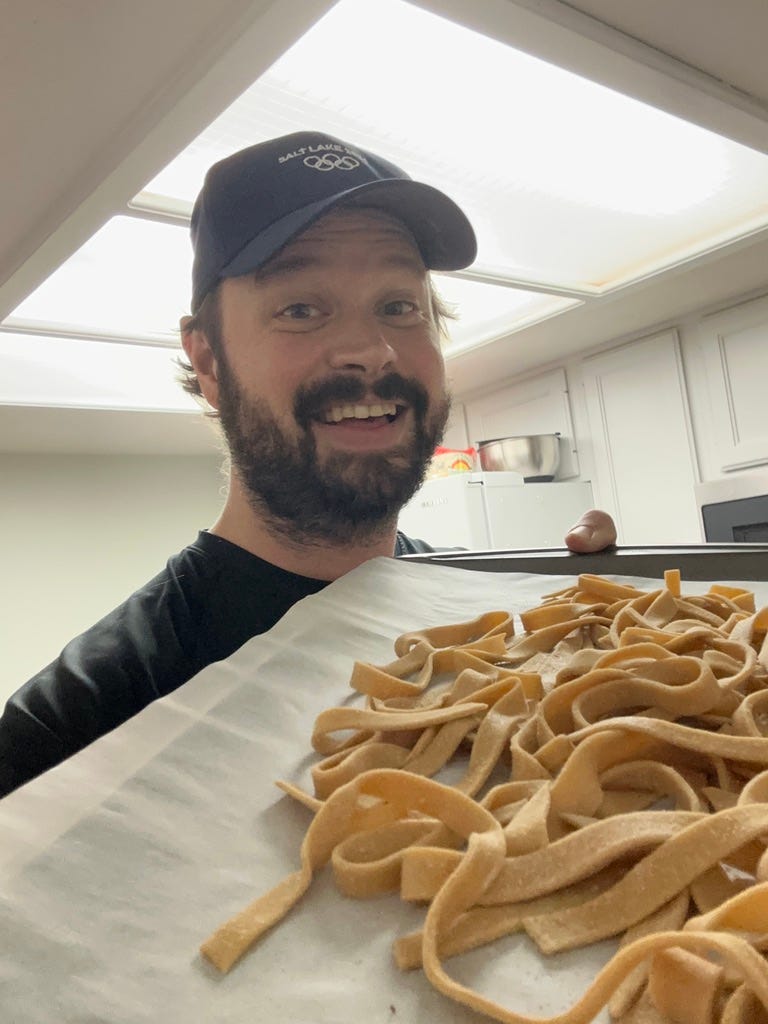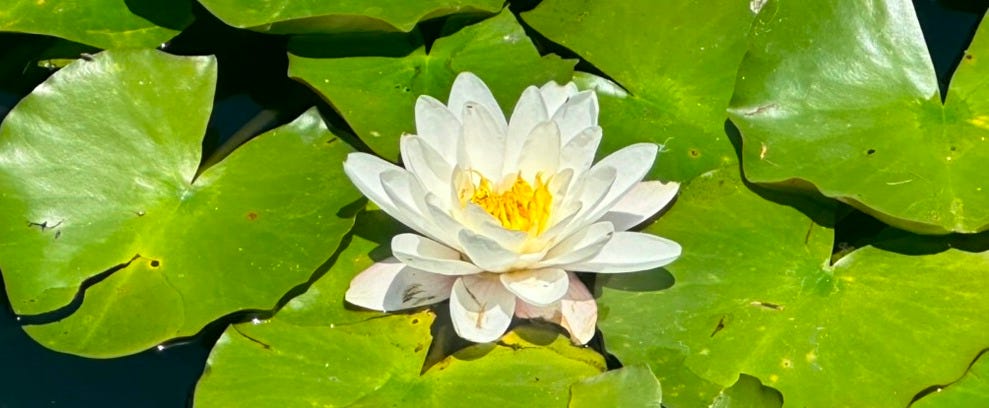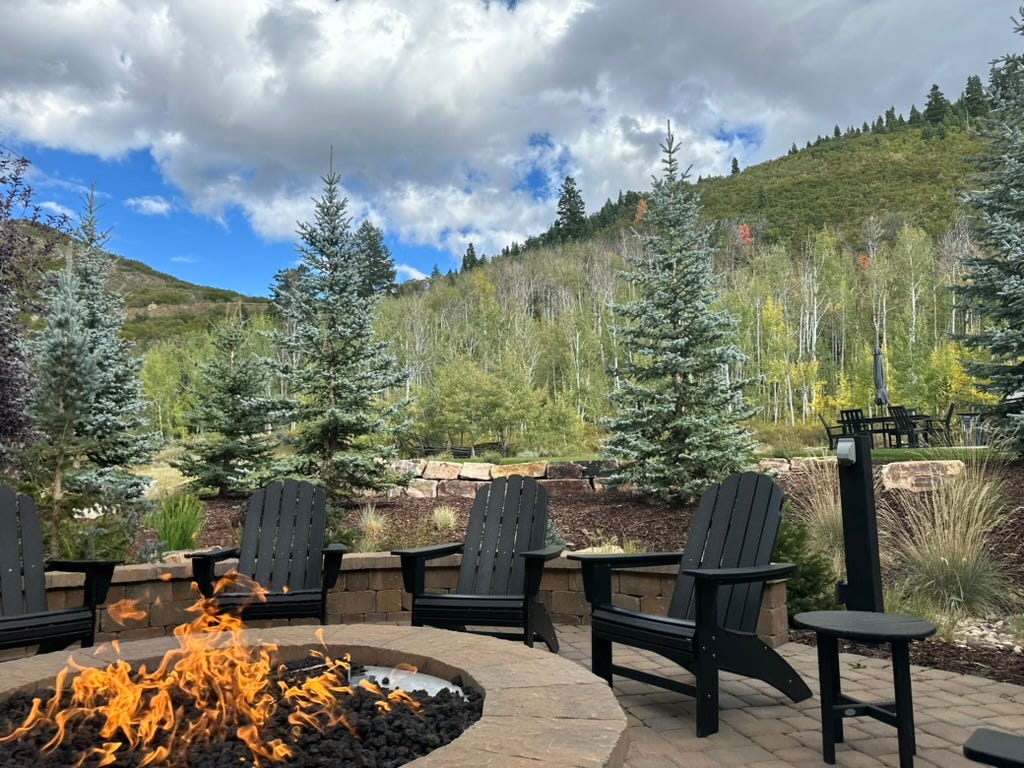Eight Unconventional Questions for Year End Reflection
A Different Kind of Year in Review
The most important part of goal-setting and being intentional about the new year is carving out space to really reflect on the year we’ve just lived.
Yet, how often do we actually sit with it? Most of the time, we rush past December 31st, eager to “start fresh.” And I almost did exactly that this year.
Wow, did I ever feel a massive wave of resistance? I didn’t want to think about the pain, sadness, or hurt. I didn’t even want to relive the joyful moments—I just wanted to flip the calendar to 2025 and focus on the new.
But that would have been a huge mistake.
Looking back, I see so much strength and resilience in my year. There were beautiful learnings and fresh perspectives I never would have noticed if I’d kept barreling forward.
So, in honor of a year full of extremes, I created a slightly different set of retrospective questions. Chances are you won’t see these exact prompts in many places, and maybe they’ll help you look at your own year in a whole new way. At the end of this article, you’ll find a free download with all of them. I hope you enjoy!
If you enjoy new ways of looking at life, you are in the right place. If you haven’t subscribed yet, that’s okay - you can do that right here!
Eight Unconventional Questions to Reflect On Your Year
Which moment made you feel most alive in your own skin—no matter how risky, raw, or ridiculous it felt?
For me, it was the day I went to pick up my personal belongings from my crumpled truck at the junkyard. I paused to notice the damage—the dent my head had left in the doorframe, the dry, flaking blood—and suddenly, a flood of memories washed over me: the paramedics and officers echoing the same words, “You are lucky to be alive.”
Right then and there, I felt it: pure aliveness in every breath. I could sense each part of my body—the bruises still healing from my seatbelt, the stiffness and pain in my joints and muscles, the pounding headache, and above all, a deep gratitude for being alive. A junkyard worker came over, clearly concerned about my kneeling, sobbing figure.
But for that moment, it felt right to let my body remember what it had been through and to just be here—alive, present, and in pain. And that was okay, because I was still here.
Name a toxic relationship, belief, or habit you buried—what was the final nail in its coffin?
I said goodbye to a few toxic beliefs this year, but the most significant was the belief that I had to appear strong at all times. Yes, I am strong, but that doesn’t mean I’m not allowed to feel—deeply and often. Eventually, the facade collapsed because I couldn’t pretend any longer.
In that collapse, people started to see the real me: the vulnerability, the emotion, the rawness I usually kept hidden. This probably surprised them as much as it surprised me. But I realized I’m still strong; I just don’t have to sacrifice my humanness to appear unshakeable. The final nail in the coffin of that toxic belief was understanding that real strength includes the freedom to feel.
What’s one impulse you stifled all year—and do you still think that was the right call?
For me, it was my tendency toward impulsive spending.
Look, ADHD can complicate finances—I’m not offering it as an excuse, just an explanation. The dopamine rush I’d get from buying something I wanted was powerful, and it became a lifelong habit of impulse buying.
Then came the divorce and a complete overhaul of my finances. Suddenly, I had no choice but to become laser-focused on curbing those spur-of-the-moment purchases.
I approached it from two angles.
First, I created a small budget for impulsive buying and assigned a specific day each month when I could indulge. It’s almost like a mini ritual now—something I look forward to—and I actually leave the store feeling good instead of guilty.
Second, I gave myself permission to add one small (3–5 dollar) treat to my grocery cart each week. It might not sound like much, but it helps me get that little dopamine fix without blowing my budget.
So yes, I’ve stifled the impulse—but only to a point.
I still allow room for a dash of impulsivity, and I truly believe it was the right move. I spend far less on meaningless stuff these days, and my spontaneous buys feel more intentional. Best of all, I’m wrapping up the year with a lot less stress about my budget.
What’s one question you still don’t have the answer to, and are (maybe) finally okay not knowing?
“Why am I here?”
It’s one of those classic, big-life questions that can feel overdone, but for years, it truly haunted me. Part of that might stem from the religious beliefs ingrained in me growing up. Another part comes from the fact that I had to start being “professional” at such a young age, so I never really explored different passions or career paths. I ended up with this lingering void in my day-to-day work, and that void kept me asking: “Is this really why I’m here?”
I still don’t have a definitive answer, but this year, it’s bothered me less and less. Maybe it’s because I’m finally leaning into my side projects and passions—letting myself simply live instead of seeking a grand purpose. It could also be that I’ve found the answer deep down, but it hasn’t bubbled up to my conscious mind yet. Either way, I’m no longer haunted by the question.
I feel at peace without a perfectly polished response (and if you know me, you know how rare that is)
Which hard truth did you finally let sink in, only to find it wasn’t so hard after all?
You really can’t please everyone.
Logically, I’ve always known that. Emotionally, though, I kept clinging to the hope that maybe I could. For ages, I was plagued by anxiety whenever I sensed someone might be offended or didn’t like something I created. Even simple things like unsubscribes from my mailing list could hurt me deeply—especially if I felt like what I’d shared wasn’t all that controversial to begin with.
Oddly enough, writing has been the antidote to all this.
Whenever I see an unsubscribe notice, I allow myself to feel that initial sting and then offer it a bit of compassion. I remind myself that I’m not going to be everyone’s cup of tea—and that’s okay. Plenty of people aren’t my cup of tea either. The more I practice this small act of acceptance, the easier it gets to shrug off what doesn’t serve me.
I’ve watched this mindset trickle into my everyday life. It’s given me permission to be more authentic—to let go of pleasing everyone and embrace being unapologetically me.
And that feels pretty liberating.
Which new taste—literal or figurative—did you acquire that changed your perspective on pleasure?

Slowing down.
For me, it was simply slowing down. I know, I know—there’s a lot of uninspired talk about “slowing down” these days, and I’m wary of overusing the phrase. But as cliché as it may sound, it truly has become a new flavor in my life, and it’s dramatically shifted how I understand pleasure.
Part of this shift has been redefining the word “pleasure” itself—separating it from the purely sexual connotations we often attach to it. From a yogic perspective, I still believe pleasure can be fleeting while bliss is a deeper, more sustained state of contentment. That said, I’ve come to see that a healthy appreciation for pleasure doesn’t undermine the search for bliss; in fact, it can enhance it.
When I lean into slowing down, living more intentionally, and being fully present, I notice how the smallest joys become infinitely richer. Yes, pleasure can feel brief, but it can also act like little stepping stones on the path toward a more profound, blissful peace.
If you had to write a one-sentence ‘obituary’ for the version of yourself you outgrew this year, what would it say?

RIP Alex, the “always in control” perfectionist; life sure taught you that most things lie beyond your control, and look how peaceful you’ve become.
In writing these reflections, I’ve realized that looking back isn’t about clinging to the past—it’s about noticing the stepping stones that carried me from where I was to where I am now.
By confronting the raw truths, losses, and moments of triumph, I’ve discovered that growth can come from even the messiest of circumstances.
I hope these questions help you uncover your own strength, your own resilience, and your own reasons to keep moving forward.
As you stand on the cusp of a new year, remember: it’s not about living a flawless story, but rather living one that’s fully, unapologetically yours. Embrace the parts that make you human—both the softness and the strength. And if you don’t have all the answers yet, that’s perfectly okay.
After all, life’s greatest insights often appear when we finally stop trying so hard to chase them.
If you know of someone that would benefit from looking at their 2024 with a different set of questions, I invite you to share this post with them:
Here are the eight questions I’ve answered in the essay:
Which moment made you feel most alive in your own skin—no matter how risky, raw, or ridiculous it felt?
Name a toxic relationship, belief, or habit you buried—what was the final nail in its coffin?
What’s one impulse you stifled all year—and do you still think that was the right call?
If this year left you with a superpower (even a small, strange one), what would it be called?
What’s one question you still don’t have the answer to, and are (maybe) finally okay not knowing?
Which hard truth did you finally let sink in, only to find it wasn’t so hard after all?
Which new taste—literal or figurative—did you acquire that changed your perspective on pleasure?
If you had to write a one-sentence ‘obituary’ for the version of yourself you outgrew this year, what would it say?
About Alex
I’m equal parts old soul and curious wanderer, a farmer boy at heart, and a writer when I can wrangle my ADHD.
Guided by my work as a political psychologist, yoga therapist, and integrative coach—as well as my own lived experience—I explore identity, connection, and wholeness, inviting others to find meaning and warmth in their own stories.
If you haven’t yet joined me, I invite you to subscribe for free:







Looking forward to answering these Alex 🙏
I really relate to many things here, including the ADHD dopamine roller coaster of impulsive spending. Mostly I feel a softening in what you wrote here. It’s a good word for me, softening.
Thanks, Alex. And many wishes for a resilient new year. ✨